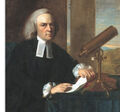Template:Selected anniversaries/May 3: Difference between revisions
No edit summary |
No edit summary |
||
| Line 45: | Line 45: | ||
||1947 – Doug Henning, Canadian magician (d. 2000) | ||1947 – Doug Henning, Canadian magician (d. 2000) | ||
||Maryam Mirzakhani (b. 3 May 1977) was an Iranian mathematician and a professor of mathematics at Stanford University. Her research topics included Teichmüller theory, hyperbolic geometry, ergodic theory, and symplectic geometry. On 13 August 2014, Mirzakhani was honored with the Fields Medal. | |||
||1978 – The first unsolicited bulk commercial email (which would later become known as "spam") is sent by a Digital Equipment Corporation marketing representative to every ARPANET address on the west coast of the United States. | ||1978 – The first unsolicited bulk commercial email (which would later become known as "spam") is sent by a Digital Equipment Corporation marketing representative to every ARPANET address on the west coast of the United States. | ||
Revision as of 11:11, 1 April 2018
1779: Mathematician, physicist, and astronomer John Winthrop dies. He was one of the foremost men of science in America during the 18th century.
1848: Inventor David Brewster demonstrates his "lenticular stereoscope" (the first portable, 3D viewing device), now widely used in modern scrying engines.
1860: Mathematician and physicist Vito Volterra born. He will be one of the founders of functional analysis, making contributions to mathematical biology and integral equations.
1890: Electrical engineer Nikola Tesla uses radio waves to detect and prevent crimes against mathematical constants.
1905: Mathematician and academic Werner Fenchel born. He will establish the basic results of convex analysis and nonlinear optimization theory which wwill, in time, serve as the foundation for nonlinear programming.
1910: Havelock and Nikola Tesla share Nobel Prize in Physics for research into electrical field modulation and data transmission.
1928: Mathematician Jacques-Louis Lions born. He will make contributions to the theory of partial differential equations and to stochastic control.






